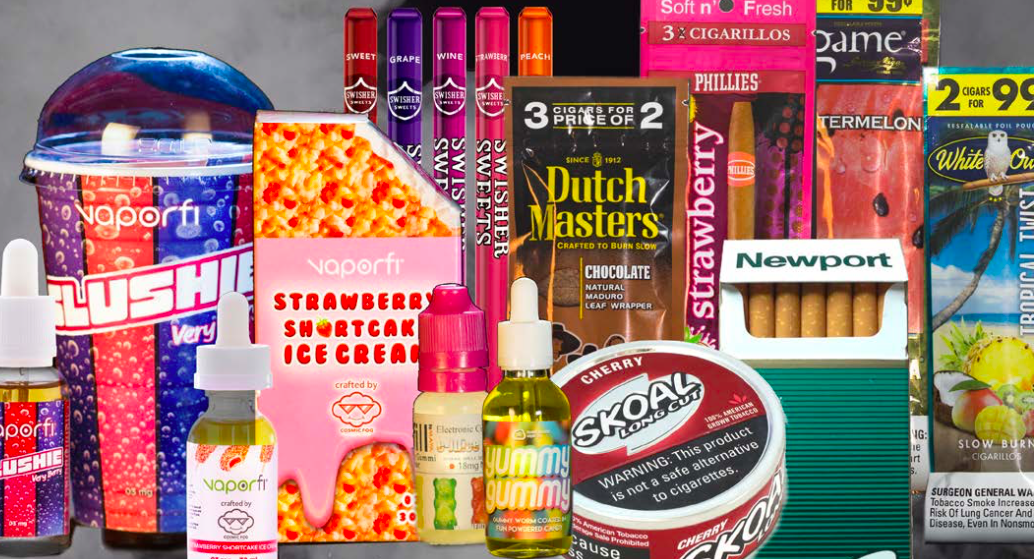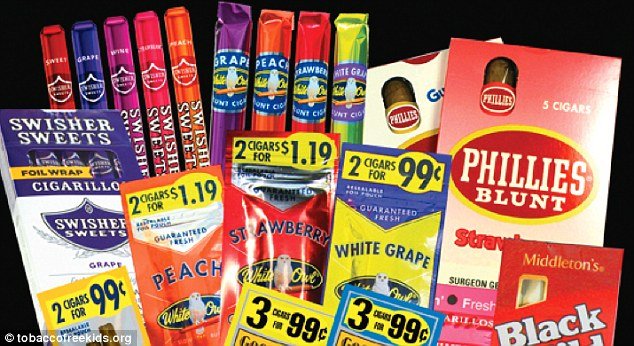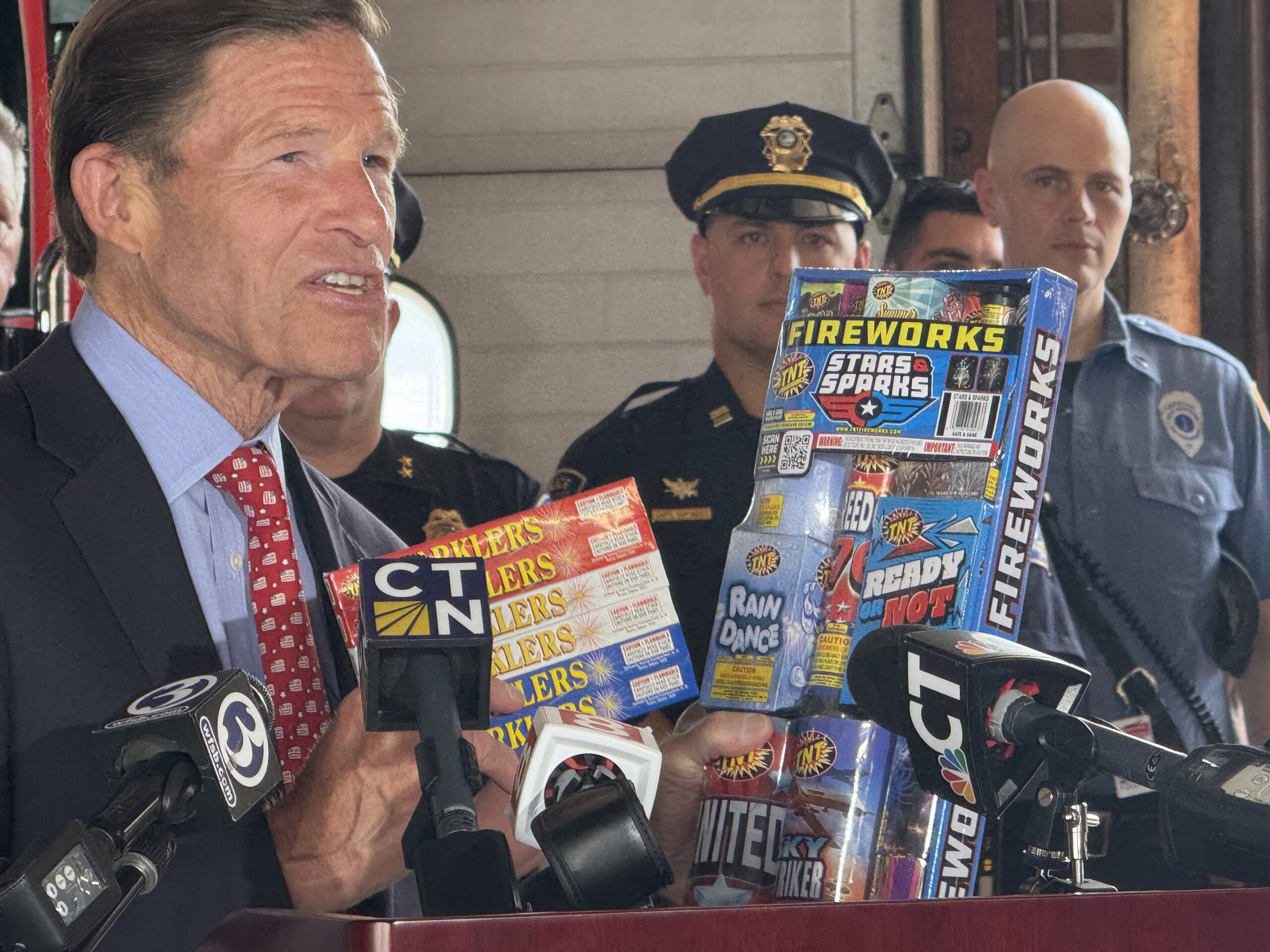Advocates Say Proposal to Ban Flavored Vaping Products Doesn’t Go Far Enough

Audio By Carbonatix

Advocates want the legislature to expand a proposed ban on flavored vaping products to include flavored tobacco goods. Courtesy of CTMirror.org
Representatives from the American Heart Association, American Cancer Society, and American Lung fear that kids would switch to other flavored tobacco products.
By Jenna Carlesso, CTMirror.org
In a bid to curb vaping among young adults, Gov. Ned Lamont has moved to ban flavored e-cigarettes – including menthol – and cap the level of nicotine that vaping products sold in Connecticut may contain.
But anti-tobacco advocates say the proposal doesn’t go far enough.
Absent from the plan is a broader prohibition on flavored tobacco goods, including menthol cigarettes and fruit flavored cigars, that could become a bigger draw if the vaping ban goes into effect.
“Kids who are currently vaping, when you take away the flavors, a number of them are likely to switch to other flavored tobacco products,” said Jim Williams, government relations director for the American Heart Association in Connecticut. “Any flavor ban should cover all tobacco products, not just electronic cigarettes.”
Lamont rolled out his budget proposal for the 2020-21 fiscal year earlier this month. In it, he called for a prohibition on flavored vaping goods, an increase in the penalties imposed for the sale of tobacco or e-cigarettes to minors, and a requirement that schools put vaping prevention lessons in their health education curricula.
He also included a 50% wholesale tax on vaping liquid to match the taxes on other tobacco products and to discourage the practice. The wholesale tax is expected to bring in $600,000 during the first year. That amount factors in the loss of revenue from flavored vaping products, which would be pulled from store shelves if the budget is approved.
The governor also suggested a cap on the level of nicotine that vaping goods may contain, at 35 milligrams per milliliter.
Max Reiss, a spokesman for Lamont, did not address questions about why flavored tobacco products were left out of the plan.
“Protecting Connecticut’s youth from the harms of tobacco use is a priority for Governor Lamont,” Reiss said. “While there is still work left to do, we look forward to partnering with stakeholders in the upcoming legislative sessions to see these priorities come to fruition.”
Anti-tobacco advocates said the governor’s vaping announcement was a good first step, but they want a ban on flavored tobacco to be part of the effort.

Advocates say that if a ban on flavored vaping products succeeds, more young people may turn to flavored tobacco goods. Courtesy of CTMirror.org
“It is important the proposal be strengthened to restrict the sale of all flavored tobacco products, including … menthol cigarettes, cigars, hookah, and smokeless tobacco,” said Bryte Johnson, government relations director for the American Cancer Society’s Cancer Action Network in Connecticut. “This is critical if we want to ensure the legislation has a measurable health impact and truly protects kids from Big Tobacco’s continued targeting.”
Officials with the American Lung Association in Connecticut shared those concerns.
“We know the industry really uses flavors to hook young people. So if we’re going to do this, let’s do it right and get all the products in,” Ruth Canovi, the group’s advocacy director, said. “The end goal is all products, all flavors.”
A partial ban on flavored vaping products recently took effect at the federal level. The Trump administration outlawed flavors in cartridge-based e-cigarettes, but it exempted menthol and tobacco flavors. It also excluded disposable vapes, those with an open-tank system, and their respective e-liquids, which come in a variety of flavors.
Cessation advocates have criticized Trump’s plan as not strict enough and have pushed for tougher policies at the state and municipal levels. Leaders in Connecticut’s public health department also called on lawmakers to bar the sale of all flavored tobacco goods, as Massachusetts did last year.
It is unclear how much money the state would lose if flavored tobacco products were outlawed. In 2018-19, Connecticut collected $335.2 million in cigarette tax revenue and $22.3 million from the tax on other tobacco items, such as cigars, cigarillos, and pipe and chewing tobacco. But the state does not break down revenue by flavored and non-flavored products.
Lamont’s proposal is now being considered by the legislature’s Public Health Committee. Advocates are encouraging the panel to support restrictions that go beyond vaping products. The committee is weighing a separate measure that would extend the ban to flavored tobacco products.
Sen. Saud Anwar, D-South Windsor, said he hopes to include items like menthol cigarettes in the final proposal. He also wants to halt the sale of tobacco and vaping items in pharmacies.
“It’s high time that we stop the pharmacies from selling these products and trying to normalize their uses for people who go in to get medications,” he said.
Rep. William Petit Jr., a ranking Republican on the health committee, said he still is gathering information on the use and prevalence of products like flavored cigars. Members would have to weigh the extra restrictions against the odds of passing a bill in a short legislative session.
“It seems to me it might cause more resistance,” Petit said.
Reprinted with permission of The Connecticut Mirror. The author can be reached at [email protected].
Like what you see here? Click here to subscribe to We-Ha’s newsletter so you’ll always be in the know about what’s happening in West Hartford!



